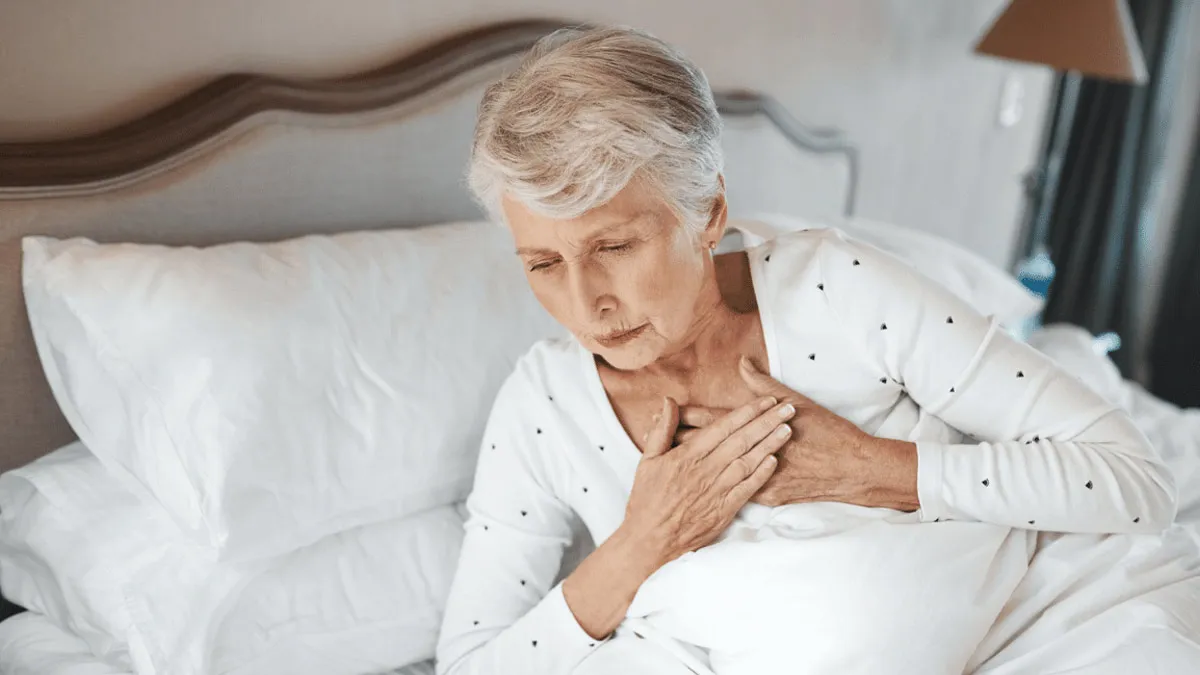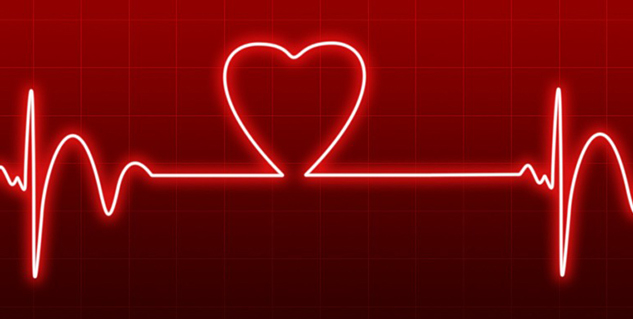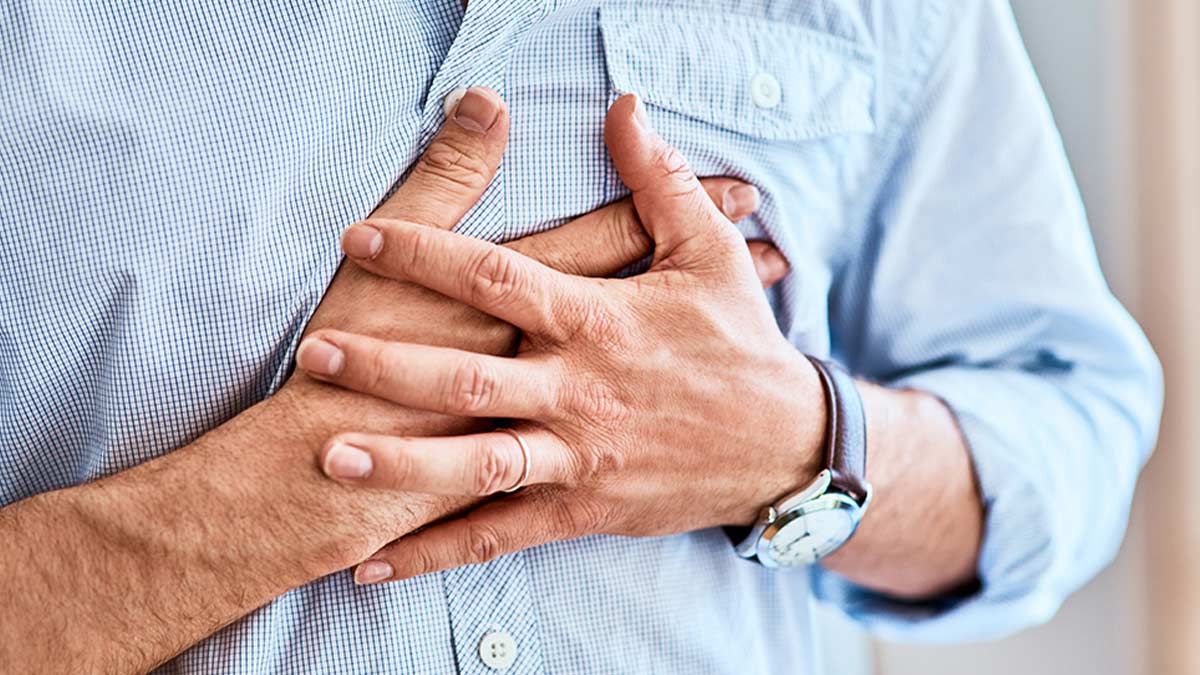
Palpitations in the heart are an unsettling feeling, particularly when they are experienced while lying down to sleep. The signs of palpitations include the heart pounding, fluttering, or missing beats that in turn instills fear. Though occasional palpitations are frequent and usually harmless, repeated or severe episodes lying flat can be a sign of underlying problems worth examining.
Table of Content:-
Understanding Heart Palpitations
Heart palpitations refer to a heightened awareness of the heartbeat, whether it feels too fast, too slow, or irregular. They are typically harmless and can happen to healthy individuals due to temporary triggers like stress, caffeine, or dehydration. However, when these sensations occur particularly while reclining, it may be related to how the body’s position affects blood flow, digestion, or pressure on the heart and nearby organs.
Why Palpitations Happen While Lying Down
A few reasons why palpitations happen while lying down include:
1. Greater Pressure on the Heart
When lying down, particularly on the left side, blood redistributes throughout the body. This may exert extra pressure on the heart and chest, making the heartbeats more noticeable. Individuals with slight heart valve problems or heart enlargement may experience this sensation more intensely.
Also Read: Expert Shares The Best Breakfast Idea For Blood Pressure Patients

2. Acid Reflux and Gastroesophageal Reflux Disease (GERD)
“Acid reflux is an unexpected but frequent source of nocturnal palpitations,” explained Dr Basavaraj Utagi, Senior Consultant Cardiologist, Fortis Hospital, Cunningham Road, in a previous interaction with Onlymyhealth. When reclining shortly after eating, stomach acid can flow back into the esophagus, irritating the vagus nerve. The vagus nerve links the gut and heart, and irritation can result in palpitations or a feeling of flutter in the chest.
3. Anxiety and Stress
Stress is not a night owl. People who spend the night awake thinking about things that are troubling them can experience a surge of adrenaline and cortisol, two stress hormones that can lead to more rapid heart beats or irregular beats. Nighttime anxiety tends to create greater awareness of body sensations, making palpitations more aware.
4. Sleeping Position and Posture
Sleeping on the left is sometimes worse because the heart is more forward in the chest wall in this position. Lying on the back may relieve the sensation for some, depending upon less direct pressure being applied. Others find a little propping up helps.
Also Read: Can Snoring Increase Your Risk of Heart Attack? Here Is What Expert Says

5. Stimulants and Late-night Habits
Caffeine, nicotine, or even alcohol near bedtime can induce palpitations. These stimulants excite the nervous system, accelerating heart rate and changing its rhythm. Energy drinks, dark chocolate, or even some medications have similar effects.
6. Hormonal and Metabolic Factors
Hormonal alterations, especially those that occur during pregnancy or menopause, are associated with palpitations at rest. Thyroid disturbances, especially hyperthyroidism, can also result in a rapid heart and such symptoms may feel intensified while resting quietly.
Tips to Prevent and Control Palpitations at Night
Here are a few ways you can prevent and manage palpitations at night:
- Take light meals and avoid caffeine earlier in the evening. Provide at least two to three hours of time elapsing between a meal and resting.
- Elevate the head at night. An extra pillow can cut acid reflux and alleviate chest tightness.
- Engage in relaxation prior to sleep. Deep breathing, meditation, or stretching can minimize stress hormones.
- Drink plenty of water and ensure electrolyte balance. Dehydration and low levels of potassium or magnesium may exacerbate palpitations.
- Undergo a medical examination if frequent. Persistent or painful palpitations must always be assessed by a doctor to exclude cardiac or thyroid pathology.
Bottomline
Heart palpitations at night are usually the result of benign factors such as reflux, stress, or posture, but they can also be an indication of a more severe condition. Monitoring triggers, lifestyle, and concomitant symptoms can lead to improved heart health.
Also watch this video
FAQ
1. Are heart palpitations occurring at night dangerous?
Not always. Palpitations that occur occasionally are harmless, but recurrent palpitations with dizziness, chest discomfort, or shortness of breath require medical assessment.2. Does posture have any influence on palpitations?
Yes. Lying down or sleeping on the left side can make palpitations more intense owing to changes in pressure within the chest and heart placement.3. When is a doctor to be seen for palpitations?
Seek medical attention if palpitations are persistent, exceed a few minutes, or accompany chest pain, dizziness, or shortness of breath.
How we keep this article up to date:
We work with experts and keep a close eye on the latest in health and wellness. Whenever there is a new research or helpful information, we update our articles with accurate and useful advice.
Current Version
Oct 28, 2025 14:50 IST
Published By : Tanya Srivastava